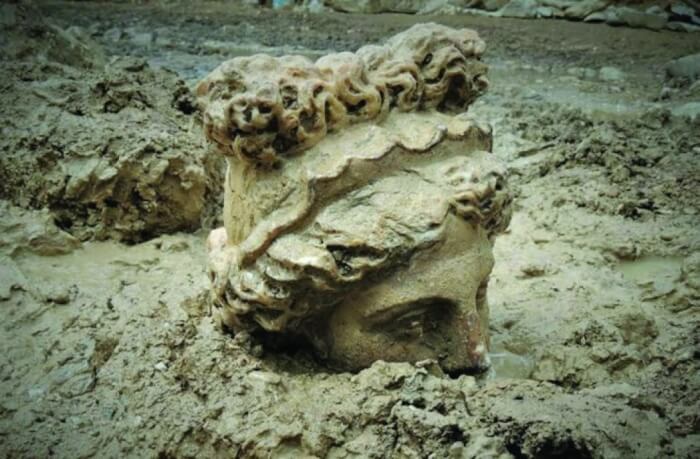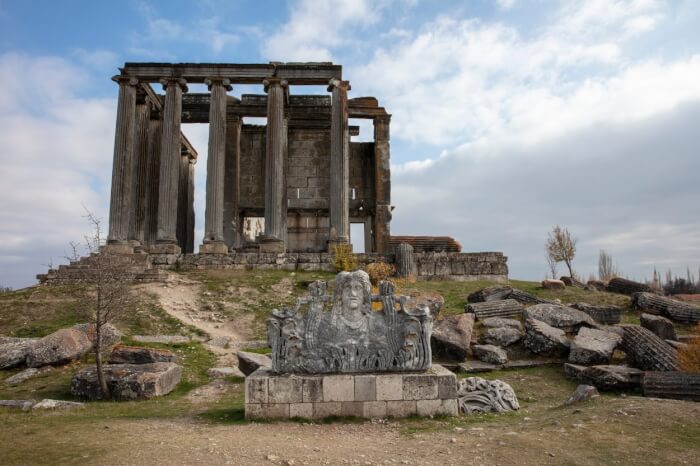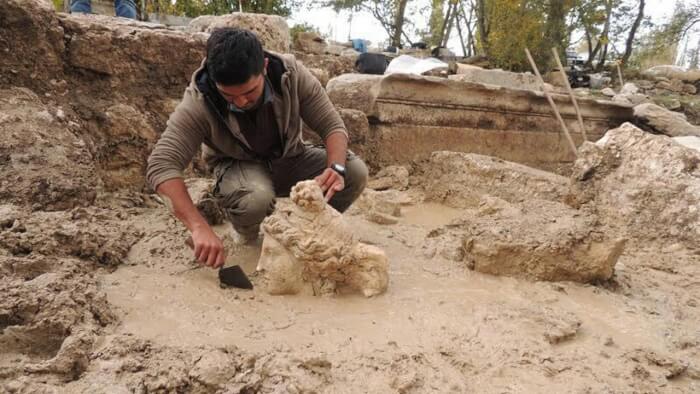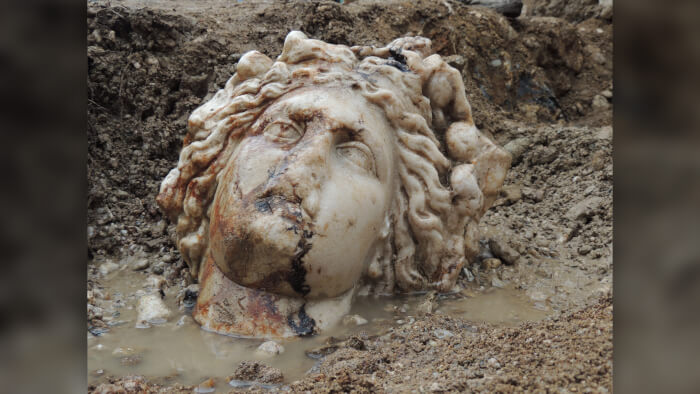Statues Of Aphrodite And Dionysus Unearthed In Turkey
Statues representing Aphrodite, the Greek Goddess of Love, and Dionisus, the Greek God of Wine, have recently been discovered in the ancient city of Aizanoi, by archaeologists from Kütahya Dumlupınar University.
According to Greek mythology, the deities Aphrodite and Dionysus had a grand love affair. So, perhaps it's fitting that archaeologists found the ancient statuary heads of the goddess of love and the drunk reveler near each other during a dig in the ancient city of Aizanoi, in western Turkey.
In 133 BC, the city was bequeathed to Rome, becoming part of the Roman province of Phrygia Pacatiana. A well-preserved Temple of Zeus, a theatre-stadium complex, and macellum inscribed with the Price Edict of Diocletian are among the surviving remains from the period.
The discovery of the deities' heads helps top off a previous find; on an earlier dig, archaeologists found the statues' headless bodies.
“We know that Aphrodite and Dionysus existed under different names in Roman times. These findings are important to us because they show that the polytheistic culture of ancient Greece existed for a long time without losing its importance in the Roman era,” says the archaeologists.
H/T: Live Science
 Source: Getty Images
Source: Getty Images
According to Greek mythology, the deities Aphrodite and Dionysus had a grand love affair. So, perhaps it's fitting that archaeologists found the ancient statuary heads of the goddess of love and the drunk reveler near each other during a dig in the ancient city of Aizanoi, in western Turkey.
 Source: Getty Images
Source: Getty Images
In 133 BC, the city was bequeathed to Rome, becoming part of the Roman province of Phrygia Pacatiana. A well-preserved Temple of Zeus, a theatre-stadium complex, and macellum inscribed with the Price Edict of Diocletian are among the surviving remains from the period.
 Source: Getty Images
Source: Getty Images
The discovery of the deities' heads helps top off a previous find; on an earlier dig, archaeologists found the statues' headless bodies.
 Source: Getty Images
Source: Getty Images
“We know that Aphrodite and Dionysus existed under different names in Roman times. These findings are important to us because they show that the polytheistic culture of ancient Greece existed for a long time without losing its importance in the Roman era,” says the archaeologists.
H/T: Live Science
Share this article
Advertisement